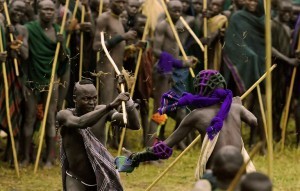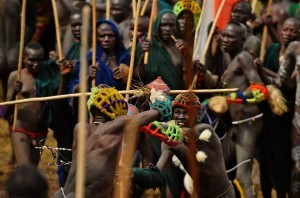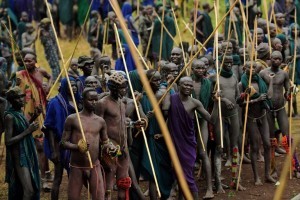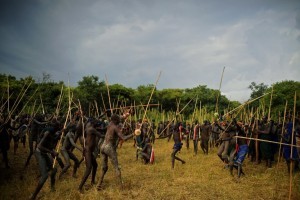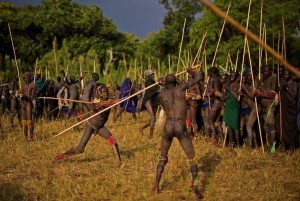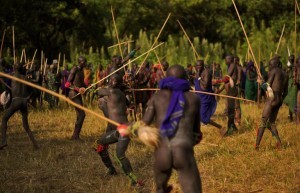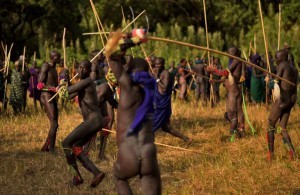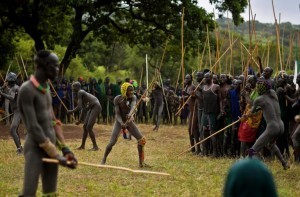These stunning images from southern Ethiopia capture the moments members of the Suri tribe take part in a fighting ritual, at a time when their way of life is under threat. Warriors are seen taking part in the ‘Donga’, or stick fight, which has traditionally been a way men impress women and find a wife. They fight with little or no clothing, and the violent clashes sometimes result in death. Battles usually take place between Suri villages, which can consist of between 40 and 2,500 people. They are usually held after the rains, and there are often 20 to 30 fighters on each side, with tribesmen taking it in turns to fight one-on-one. Referees enforce a code of conduct – it is against the rules to hit someone while they are on the floor.
